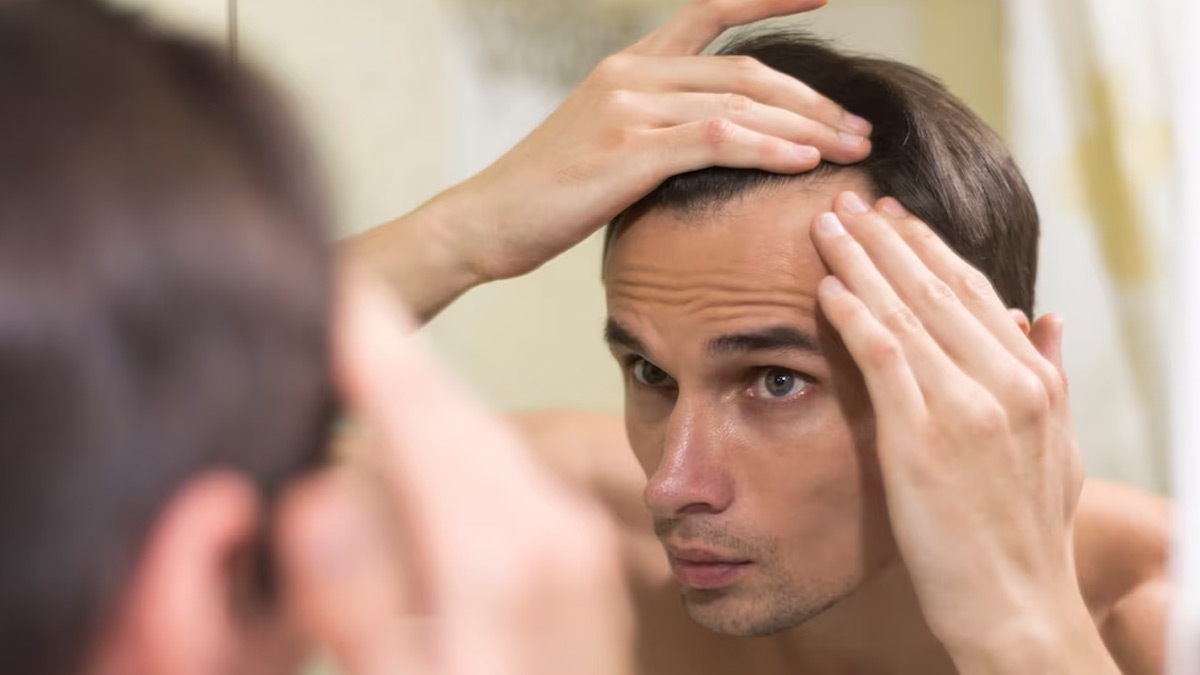
A receding hairline is a common concern for many individuals, and while it's often a natural part of the ageing process, there are certain signs that may indicate a more serious issue. In a conversation with Only My Health, Dr SK Gupta, Dermatologist, DMCH, Darbhanga helps us to understand when to be concerned about a receding hairline:
Table of Content:-
Normal Receding Hairline
Age-Related Recession
“As individuals age, it's common for the hairline to recede slightly. This is a natural part of the ageing process and is often more noticeable in men. It doesn't necessarily indicate a health concern,” Dr Gupta said.


Also read: Hairline Fractures: Causes, Symptoms And Treatment
Genetic Factors
Genetic predisposition plays a significant role in hair loss. If your family has a history of receding hairlines, it's possible that you may experience a similar pattern.
Signs to Be Concerned
Rapid Hair Loss
If you notice a sudden and rapid loss of hair, especially if it occurs within a short period, it's advisable to consult with a healthcare professional. This could be a sign of an underlying health issue.
Bald Patches or Thinning Across Scalp
If the hair loss extends beyond the receding hairline and results in bald patches or significant thinning across the entire scalp, it may indicate a more serious condition like alopecia areata or other autoimmune disorders.
Itching, Burning, or Pain
If you experience accompanying symptoms like itching, burning, or pain along with hair loss, it could be indicative of an underlying scalp condition or infection that requires medical attention.
Sudden Changes in Hair Texture
Changes in the texture of the remaining hair, such as increased brittleness or thinning strands, may be a sign of an underlying health issue or nutritional deficiency.
Receding Hairline in Women
While receding hairlines are more common in men, women can also experience hair loss. If you notice a receding hairline in women, especially outside the normal pattern, it's essential to consult with a healthcare professional.

Hormonal Changes
Hormonal fluctuations, such as those related to pregnancy, childbirth, or menopause, can contribute to hair loss. Excessive hair shedding during these times may warrant medical attention.
When to See a Doctor
If you are concerned about your receding hairline or notice any of the signs mentioned above, it's recommended to seek advice from a healthcare professional or a dermatologist. They can help identify the underlying cause of your hair loss and recommend appropriate treatment options.
Lifestyle and Self-Care Tips
Healthy Diet
Ensure you have a well-balanced diet rich in vitamins and minerals that support hair health, such as iron, zinc, and biotin.
Gentle Hair Care
Avoid harsh hair treatments, excessive heat styling, and tight hairstyles that can contribute to hair damage and breakage.
Stress Management
Chronic stress can contribute to hair loss. Engage in stress-reducing activities such as meditation, yoga, or exercise.
Scalp Care
Keep your scalp clean and healthy. Use a mild shampoo, and consider products that promote scalp health.
Regular Check-ups
Schedule regular check-ups with a healthcare professional to monitor your overall health, as certain medical conditions can contribute to hair loss.
Also read: Rapidly Receding Hairline: Here Are Some Prominent Reasons
Remember, it's normal for hairlines to change with age, but significant and sudden changes may warrant professional attention. Always consult with a healthcare professional for personalised advice based on your specific situation.
Also watch this video
How we keep this article up to date:
We work with experts and keep a close eye on the latest in health and wellness. Whenever there is a new research or helpful information, we update our articles with accurate and useful advice.
Current Version